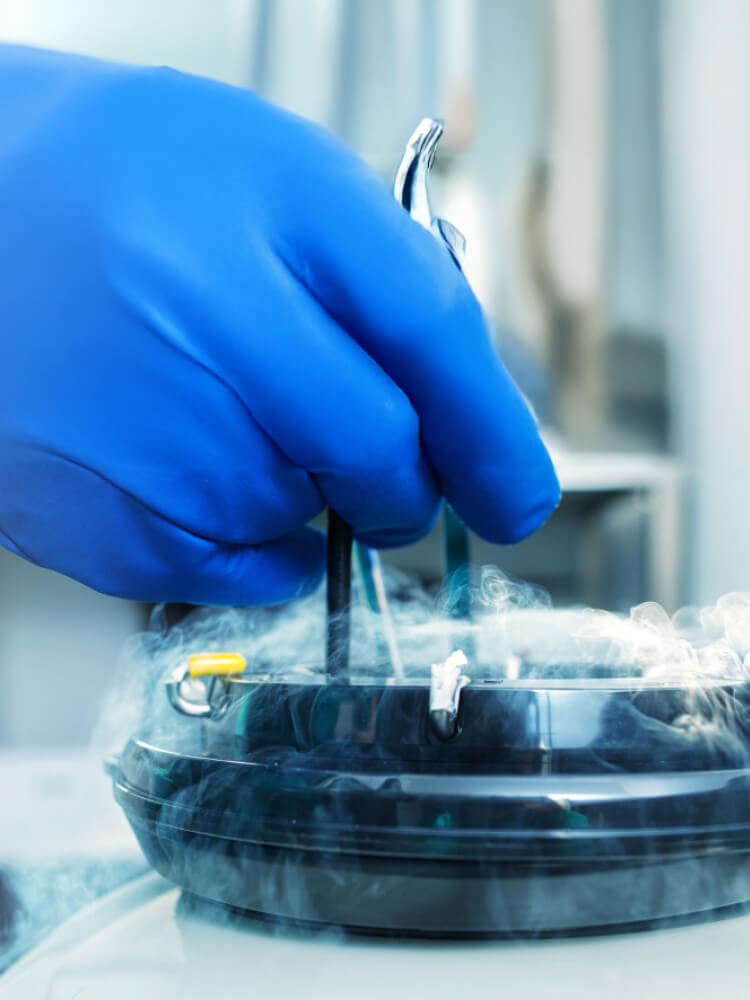Women are born with a set number of eggs that gradually decrease as they age. However, science has discovered ways to preserve that fertility in time so that women can plan their families on their own terms.
What is Fertility Preservation in Women?
Women who delay childbearing due to personal circumstances now have the option of freezing their own eggs to be fertilized and implanted at a later date. Egg freezing enables women to take advantage of their body’s fertility at a time when eggs are at their healthiest. It’s important to know the facts and options.
Women have an average of 2 million eggs at birth. This supply diminishes at a rate of about 1,000 per month, from the day they are born. This decline is part of the natural aging process and is commonly referred to as a woman’s biological clock. The rate at which eggs are lost is also thought to accelerate during the late 30s and early 40s. Egg quality also diminishes with time. Miscarriages and chromosome defects become more common with later age at pregnancy.
Previously, a woman not ready for parenthood and wanting to use her own eggs had the option of harvesting her own eggs through IVF, then fertilizing these eggs with her partner or anonymous donor sperm. The resulting embryos would then be frozen and implanted at the appropriate time.
Indiana Fertility Institute is pleased to offer egg freezing (also known as oocyte freezing) for women who want to extend their fertility potential. This provides younger women with the ability to preserve their unfertilized eggs until they are ready to pursue parenthood.
Am I a Candidate for Egg Freezing?
Candidates for egg freezing are women up to the age of 40 who do not currently have a male partner or prefer not to use donor sperm. Women who may benefit from egg freezing include:
- Younger women who want to delay childbearing. They can freeze their eggs for use in the future when their natural ability to reproduce would otherwise be reduced.
- Women with upcoming pelvic surgery or medical treatments that could result in the loss of ovarian tissue or eggs. This includes women with benign diseases, such as ovarian cysts and endometriosis, as well as cancer.
- Women at risk for early menopause because of family history or genetic reasons.



